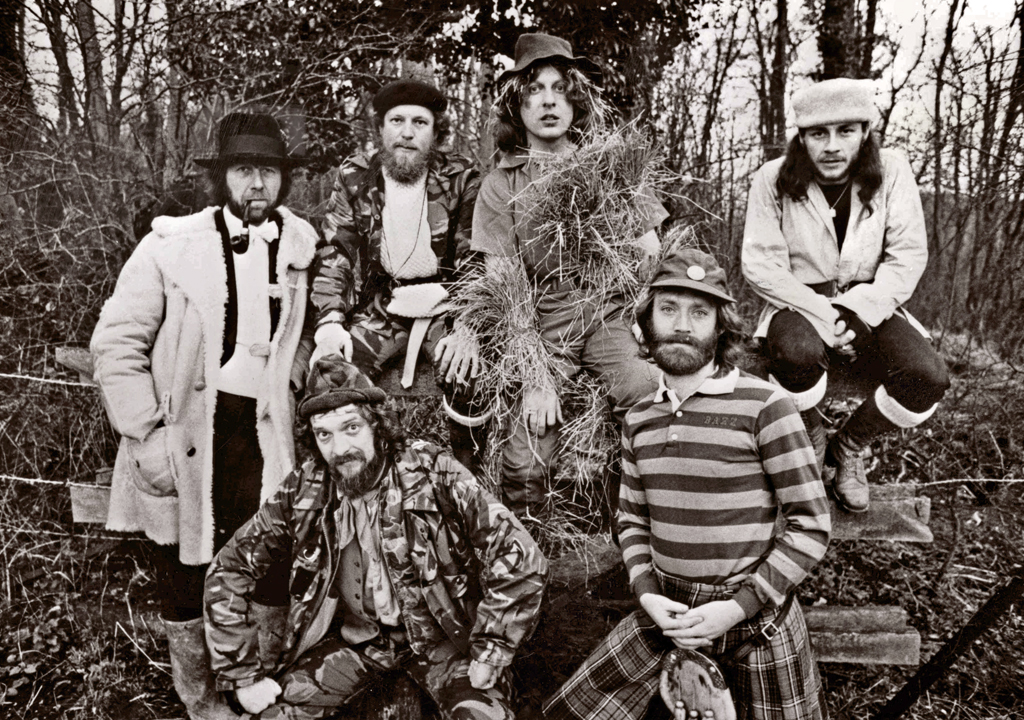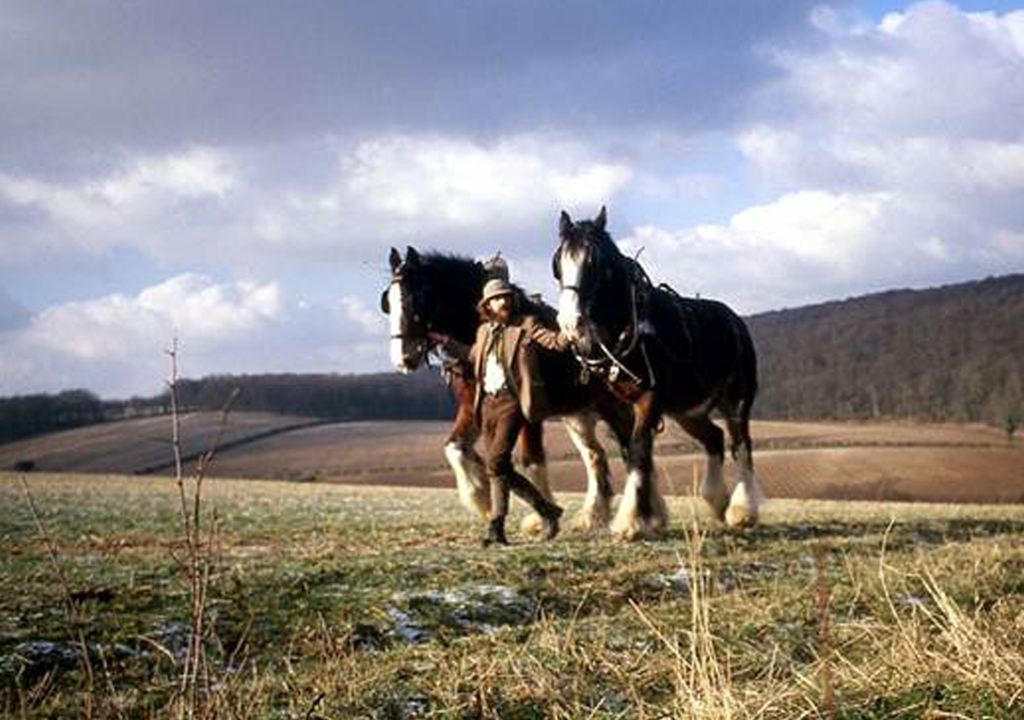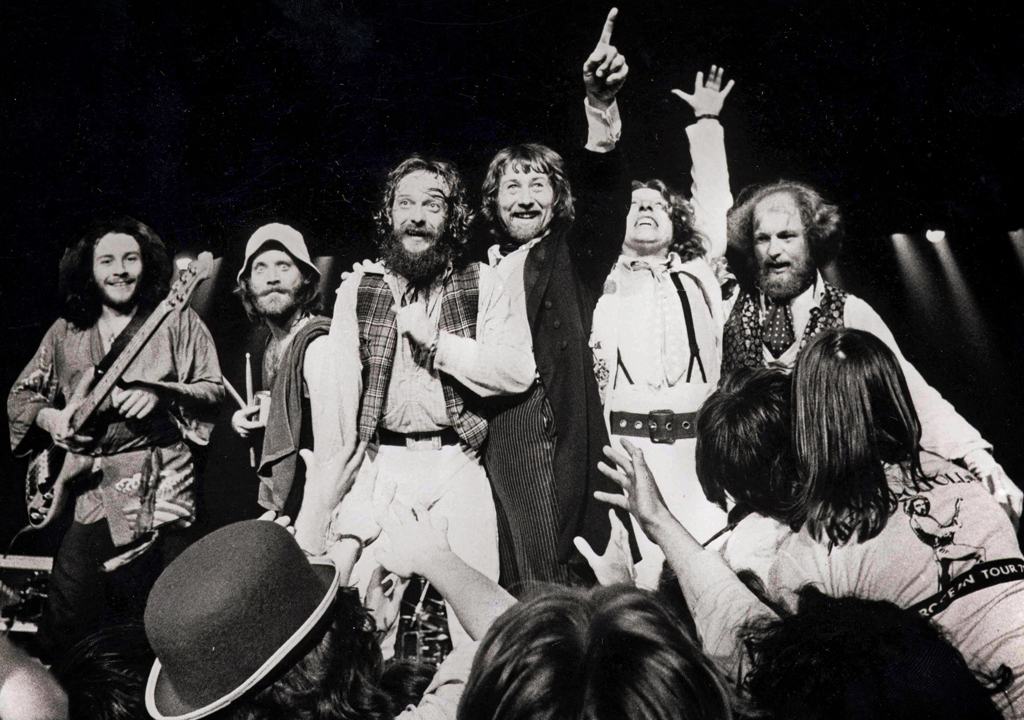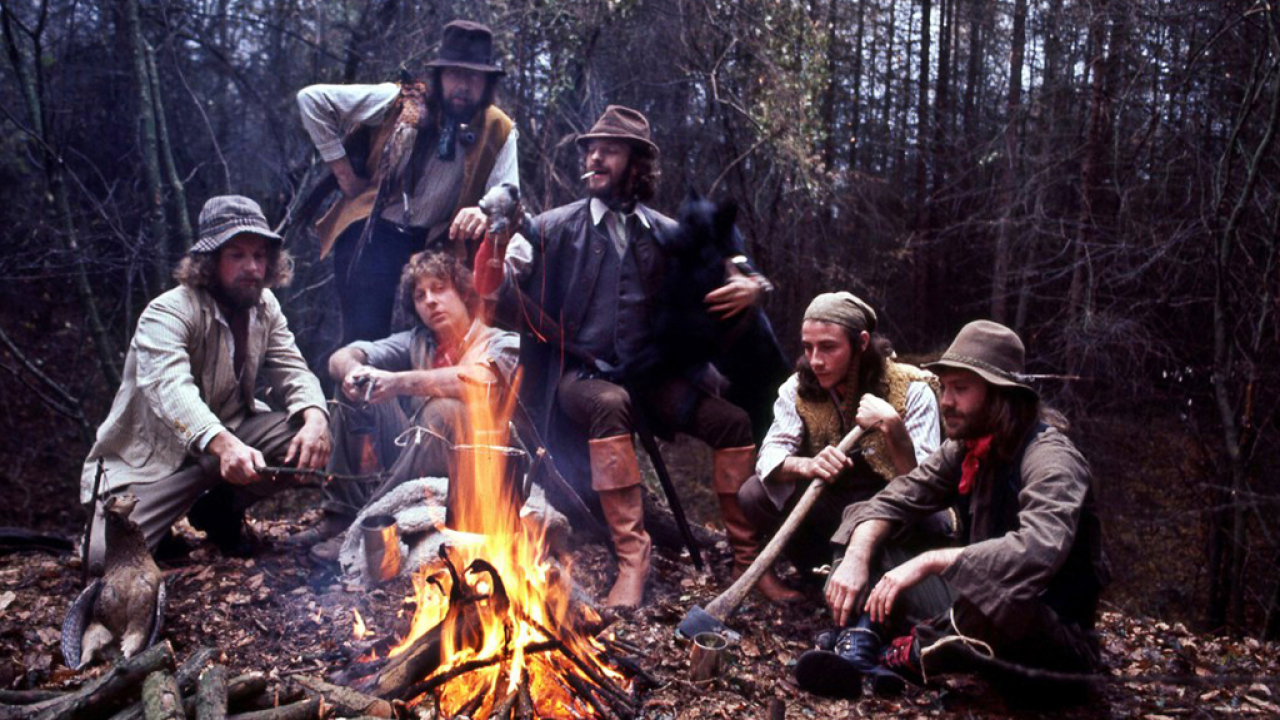It’s early 1977 and the battle lines have been drawn. The Clash open The Roxy, London’s hottest new punk venue, with a riotous show on New Year’s Day. The Sex Pistols, dumped by EMI and A&M Records, begin an uneasy courtship with Virgin. The US sees the release of key albums by the Ramones (Leave Home) and Television (Marquee Moon), while back home The Damned uncork the fizzing half-hour of adrenalin that is Damned Damned Damned, now regarded as the first British punk album.
On the other side of the Atlantic, disco and soft rock are flooding the mainstream. The Eagles perch at the top of the US album chart for eight weeks with Hotel California. That record will go on to sell more than 32 million. Meanwhile, Fleetwood Mac are set to become the biggest band in the world with Rumours, the album that will come to define an entire era of Cali-rock hedonism.
But there was one best-selling group who steadfastly refused to declare allegiance with any of it: Jethro Tull. Since starting out in the late 60s, they’d morphed from an underground blues band to multimillion-selling prog gods thanks to albums such as Aqualung, Thick As A Brick and A Passion Play. Theirs was a heady carnival of noise that made liberal use of rock, folk and classical music to create concept works about religion, the afterlife and the fictional travails of an eight-year-old child prodigy. Factor in hirsute leader Ian Anderson, prone to performing in a tramp’s coat and codpiece while standing on one leg and puffing at a flute, and Tull were never likely to follow any course other than their own.
The UK music press had never been the band’s most ardent supporters. That fact was addressed in bitingly satirical terms on Tull’s 1976 album Too Old To Rock ’N’ Roll: Too Young To Die!, which told the tale of a deadbeat rocker who suddenly found himself fashionable again. Indifferent critics were left to ponder if this might be Anderson’s way of bowing out. As punk boiled and AOR ruled, the only thing more anachronistic would be for Tull to return with a folk album about woodland sprites, Olde England and solstice bells. Which is exactly what they did.

Jethro Tull’s immersion in folk was partly a reflection of Anderson’s home life. At a time when many of his wealthy contemporaries were scurrying to tax havens abroad, the singer had opted to remain in Britain. Long tired of the bump ’n’ bustle of London, he was now settled in a 16th-century farmhouse in the Buckinghamshire countryside. In 1976 he’d married Shona Learoyd, formerly a press officer at the band’s label, Chrysalis, and a one-time member of Tull’s live band. The following year their son James was born.
This new domestic fulfilment was mirrored in Tull’s bucolic tenth album, Songs From The Wood, which burst with folkloric imagery of an ancient isle that had long ago ceased to exist. But rather than offering a stylised take on British tradition, it was a record that yanked at its roots and delivered something fresh and enervating. Verdant harmonies were accompanied by nimble acoustics and offset by interludes of heavier, more robustly Tull-like rock.
“Probably around 1974 I was starting to find ways of bringing elements of folk music tradition into the music I was writing,” says Anderson, who also produced Steeleye Span’s Now We Are Six that year. “But it didn’t come about in a big way until I started working on Minstrel In The Gallery [’75], and then into Songs From The Wood. I was just trying to find a way for it to come together that wasn’t twee. As much as I liked Steeleye Span, sometimes it was all a bit folky in kind of a wet way. And I didn’t want to go down that route. It still had to be rock music. But I did feel there was a lot of mileage in learning from those traditions, turning them around in a way that involved electric instruments. Songs From The Wood was an attempt to take those themes and give them much more of a rock edge.
Nothing exemplified Jethro Tull’s new approach more than Pibroch (Cap In Hand). An epic that takes Scottish bagpipe music as a somewhat unlikely root, it ebbs and flows through varied climates and tempos, reaching a thrilling peak with the interplay between Anderson’s dazzling runs on flute and Martin Barre’s unfettered electric guitar. In terms of girth and adventurism, it’s classic Tull.
“I had a cassette of Scottish bagpipe music,” Anderson recalls, “and there was one particular piece, a traditional air, called The Desperate Battle Of The Birds; it had a wonderful haunting quality. So I set out to write something in that vein. I didn’t want to use bagpipes, so we used multi-layered sustained guitar notes to create that drone quality.”
Other songs, like Jack-In-The-Green, Cup Of Wonder and the ecstatically wiggy Velvet Green were a triumph of great ensemble play. Aside from their leader’s multi-instrumental flourishes and Barre’s expressive guitar, the bubbling organ lines of John Evan and new boy David Palmer were crucial to the sound and texture of Songs From The Wood. Barre singles out Palmer, who had been an on-off fixture with Tull before becoming a full member on Songs From The Wood, as a particular influence. “David made a huge impact in terms of arranging,” Barre says today. “He was almost a group leader, both in a social sense and musically. He really brought his talents to the table. He was the catalyst that brought everybody together and kept us all amused.”
The lyrical impetus for Songs From The Wood came after Steeleye Span manager Jo Lustig gave Anderson a book on British folklore. “It was filled with references to all kinds of old stories – elves, goblins, monsters and so on,” says Anderson. “So it served as a kick-start for delving into that world of folklorish creatures and pre-history that put me in the mood to write those songs.”
Not that Songs From The Wood was a fabulist foray into a world of pixies and superstition. Jack-In-The-Green, for example, was driven by Anderson’s concern about the effects of industrialisation.
“Some of the folky things I wrote a long time ago are forward-thinking songs about climate change, from a time when scientists were pontificating on the likelihood of another Ice Age,” says Anderson. “The idea of climate change isn’t something that conveniently happened ten years ago. So those are things in song that could be construed as me writing about quaint things in the past, but they’re often relating to today, and even trying to point into the future. I like to think my songs are about something other than me and how I feel today. Alanis Morissette I am not.”
When Songs From The Wood was released in February 1977, a week before The Damned’s debut, it got a mixed reception. Melody Maker called it “an offering from a band that displays new potential without fully realising it”. Sounds likened it to the background music of TV’s Robin Hood, sneering: “If James Last can play The Beatles, then Jethro Tull can turn to traditional folk.” NME were more perceptive: “Songs From The Wood is a vindication of Anderson’s uncompromising attitude towards Tull’s music, and an album that demands they be considered as one of your first-division British bands.”
Nevertheless, the record-buying public voted with their wallets. The album was Tull’s biggest commercial success since Thick As A Brick, making the Top 10 in the US and No.13 at home. Given the times, it seemed that Anderson’s decision to shape a record from the most unfashionable genre was vindicated.
“We were keenly aware of not wanting to appear as if we were trying to slip into the post-punk coattails that were worn by The Stranglers or The Police,” he says. “They were bands that were seen as being part of the punk world, but they weren’t. One of the guys in The Stranglers was even older than any of us. But they fitted the time and presented themselves with punk attitude, with far more evolved and detailed music. As for The Police, two of them were old hippies and the other was a school teacher. You can’t get much less punk than that, can you? But they were the acts giving punk a lift in terms of being direct and punchy, but also returning to a little more musicality.”
Notwithstanding the fact that John Lydon later confessed to being a fan of Aqualung, their status as the band least likely to impress the punk wing of the music press didn’t appear to bother Jethro Tull. As Barre says: “It’s like the old saying: bad publicity is better than none at all. It was all faintly ridiculous, with the way we were dressed and the pomposity of the stage shows. From the word go, people either loved us or hated us. And that’s how it should be. Too many musicians have big egos that need to be comforted, but we were never that way.”

Jethro Tull followed up Songs From The Wood with another album with a premise that was deeply unhip. 1978’s Heavy Horses came with a dedication to “indigenous working ponies and horses of Great Britain”. The rustic sleeve image showed Anderson in rural attire, head bowed, solemnly leading two Shires to a day’s graft.
On the surface, Heavy Horses dealt with more earthly, prosaic issues than its predecessor: there was a song about the conformist drudgery of the daily commute (Journey Man), odes to Anderson’s dog (Rover) and cat (…And The Mouse Police Never Sleeps), plus one for his new son, James (No Lullaby). Yet there was something deeper underfoot. As with Songs From The Wood, the album served as a discourse on transience and disappearing worlds. Anderson likened the title track, one of two complex suites on the record, to an equestrian Aqualung. It’s a ravishing hymn to the downtrodden, the creature that was once an essential part of working life – maybe the Shire or the Clydesdale – now in terminal decline. ‘And one day when the oil barons have all dripped dry,’ Anderson sings, ‘and the nights are seen to draw colder/They’ll beg for your strength, your gentle power.’
“Heavy Horses is definitely a look into the past and singing rather sadly about the end of an era,” he says. “I suppose the last evidence of heavy horses would’ve been pulling the carts laden with beer from breweries into towns. It’s a bit sentimental, but sometimes holding up examples gives you a new sense of appreciation. You realise times will change. They’ll be gone and won’t be coming back. So treasure them while they’re still here.”
Other tunes, such as Acres Wild and Weathercock, essayed tales of flight and a plea for better days ahead. The music was harder, too. The nine minutes of Heavy Horses, which flows from piano ballad to fiddle-fest (courtesy of Curved Air violinist Darryl Way) to full gallop, is one of the finest moments in all of Tull’s canon. No Lullaby rushes out on a stampeding Barre riff. Weathercock starts off all trilly folk, then gets deliciously prog-freaky. Acres Wild sounds like a flaming campfire stand-off.
“I think Songs From The Wood and Heavy Horses are two of the best albums from my time in Jethro Tull,” offers Barre. “Certainly from a songwriting point of view. On my latest acoustic album, Away With Words, I do instrumental versions of Moths, One Brown Mouse and Fire At Midnight, which means that the melodies have to stand up on their own. Which they do. They’re wonderful songs.”
Heavy Horses didn’t fare as well commercially as Songs From The Wood, but it did make the Top 20 on both sides of the Atlantic. Critics, meanwhile, couldn’t resist another swing of the boot. Melody Maker’s Harry Doherty said: “I’m forced to compare Tull to an ageing dog: lots of bark but no bite.” Writing in Record Mirror, Sheila Prophet complained: “It’s very different from the crazed ‘progressive’ outfit I used to know and love.”
In April ’78, just after the release of Heavy Horses, Tull toured the UK and Europe. The resulting Bursting Out, released in October, was a live double album that appeared to show the band in great shape. But when they reached the US that month, bassist John Glascock was hospitalised with a heart complaint. His place was taken by ex-Stealers Wheel man Tony Williams.
Glascock’s problems continued into the recording of the follow-up to Heavy Horses, Stormwatch, in the spring of ’79. Despite the damage to his heart valves, initially caused by an infection, there was no let-up in his wild ways. “It was immediately obvious that he was still not entirely well,” Anderson recalls. “And neither had he taken seriously enough his doctor’s warning in terms of changing his lifestyle. Things were pretty bad. And there were a lot of tracks where I ended up having to play bass because John just wasn’t in a position to do it. Unfortunately he had a bunch of folks around him who were not strong characters themselves. I really feel they made it too easy for him to carry on doing drink, drugs, late nights and parties. It was a point in his life where it was live or die. But unfortunately he just left it too late.”
Glascock’s issues cast a cloud over the aptly named Stormwatch, one that the music couldn’t dispel. The last in Tull’s loose eco-folk trilogy, the album dealt with weighty concerns – oil, avarice, consumerism – but the tunes lacked the snap and verve of Heavy Horses or Songs From The Wood. “It wasn’t exactly a happy album to make,” Anderson admits. “Whereas Songs From The Wood had its upbeat, whimsical moments, Stormwatch was a dark album because of the mood and nature of the songs. So it would have come out like that whether John had been playing or not.”
The album closes with David Palmer’s Elegy. Written for his father, it’s tempting to also view it as a requiem for a fallen bandmate. In November that year, two months after Stormwatch came out, Glascock died, aged just 26.
“Making Stormwatch was a horrible period of time because of John being ill,” Barre remembers. “It all started going really badly in the studio and it wasn’t his fault. Every band member was to blame to some extent. The album really shouldn’t have happened. You can hear the struggle, musically, to get it made.”

Glascock’s passing also signalled the end for what many consider to be the classic era of Jethro Tull. Distraught at the death of his “closest friend”, drummer Barrie Barlow quit.
“In many ways, elements within the band were growing apart,” Anderson reflects. “It wasn’t like it was fragmenting or we were having big fights, it was just a sense of people heading in different directions. I got to the point where I thought: “Okay, probably best to put this on ice for a time now and do something different.’”
The arrival of a new decade also drew a line under Tull’s most underrated work. And while no one can claim that Stormwatch is a neglected classic, both Songs From The Wood and Heavy Horses are gems that warrant attention. These records are daring, experimental, literate and often thrilling. They also stand as a testament to the men who made them.
“From around 1972, when the guys who played for most of the seventies got together,” says Anderson, “we all had a very good relationship with each other. For a while it was very productive in terms of people and musicians together. I think that’s the important thing you leave behind. To me, that’s the honourable tradition of the band leader: someone who takes his little army through life for a few battles and returns them safely to their wives and mothers at the end of the war.”

